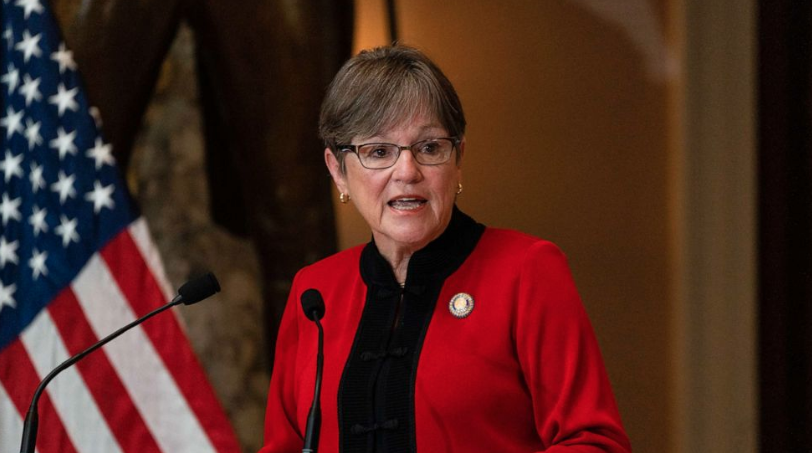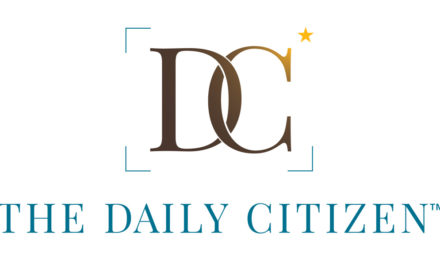Good Morning!
Speaker Nancy Pelosi visits Taiwan as tensions with China mount; a teenage pro-life activist is allegedly assaulted in broad daylight and research says friendships are a vital part of a successful life.
Those stories and more below.
- Kansans Reject Amendment to Eliminate Abortion Rights from State Constitution
From the ABC News:
The ability to access abortions in Kansas is not changing.
ABC News projects that voters on Tuesday rejected an amendment to the state constitution that would have specified “Kansas does not require government funding of abortion and does not create or secure a right to abortion.”
It was the first popular vote on abortion rights in nearly 50 years — and the first since the demise of Roe v. Wade. In reversing Roe in June, the U.S. Supreme Court ruled that abortion should be left to individual states.
A “yes” vote to approve the Kansas amendment would have effectively overridden a 2019 state Supreme Court ruling and would have cleared the way for GOP super-majorities in the Kansas legislature to enact more stringent abortion restrictions.
A “no” vote keeps the status quo, preserving Kansas as what advocates describe as an abortion rights refuge in a region where bans on the procedure have proliferated.
- Pelosi addresses Taiwan parliament in visit condemned by China
From Reuters:
China condemned the highest-level U.S. visit to Taiwan in 25 years as a threat to peace and stability in the Taiwan Strait, responding with a flurry of military exercises, summoning the U.S. ambassador in Beijing, and announcing the suspension of several agricultural imports from Taiwan.
Pelosi arrived in Taipei late on Tuesday on an unannounced but closely watched trip, saying that it shows unwavering U.S. commitment to the self-ruled island that Beijing says is part of China.
On Wednesday, Pelosi thanked President Tsai Ing-wen for her leadership, called for increased inter-parliamentary cooperation.
“We commend Taiwan for being one of the freest societies in the world,” Pelosi told Taiwan’s parliament.
- Teenage pro-life activist allegedly punched in the face while knocking on doors in Kansas
From Fox News:
A Kansas woman allegedly attacked a teenage pro-life canvasser when the student knocked on her door Sunday.
The student, Grace Hartsock, was going door-to-door to turn out Kansas voters for a Tuesday referendum on abortion law. The incident occurred when she approached a home in Leawood, according to Students for Life, the organization with which Hartsock was volunteering.
Hartsock says a woman answered the door and politely stated she was not interested when she learned why Hartsock had knocked.
“No, I’m sorry, I don’t think you want to talk to us,” the woman said.
Hartsock turned to leave when another voice, also a woman, came from farther inside the house yelling and cursing.
- Department of Justice Sues Idaho to Block its Abortion Ban
From the Daily Citizen:
The U.S. Department of Justice (DOJ) is suing the state of Idaho over its abortion law – scheduled to go into effect on August 25 – that bans all abortions except “to prevent the death of the pregnant woman.” The DOJ argues that the state law does not permit federally regulated hospitals and emergency rooms to comply with a federal law which it says mandates that abortions be performed for “emergency medical conditions.”
According to a press release from the DOJ, the Complaint filed in federal court in Idaho “seeks a declaratory judgment that the Idaho law conflicts with, and is preempted by, the Emergency Medical Treatment and Labor Act (EMTALA) in situations where an abortion is necessary stabilizing treatment for an emergency medical condition.”
The DOJ is also seeking an injunction permanently blocking the Idaho law “to the extent that it conflicts with EMTALA.”
The lawsuit is not actually a surprise. The Daily Citizen reported last month on the DOJ task force recently organized to monitor state abortion laws and sue any states not considered to be in compliance with federal laws such as EMTALA.
Related: Update on Life in the States: Courts Rule on Abortion Bans in Kentucky, Louisiana and Michigan
- ‘Seasoned with Grace and Truth’: How the Church Needs to Respond to the LGBT in Our Midst
From CBN News:
It’s latest film, “Thor: Love and Thunder,” is said to be filled with LGBT storylines, leading some Christian groups to boycott the movie.
So, how should the church address the issue while offering truth, love, hope, and healing?
“I was a believer. I knew Jesus and I knew what scripture said but here I was in these relationships,” said Jeff Johnston, Culture and Policy Analyst with Focus on the Family.
Johnston, who once lived as a gay man, recalls what it was like when he came out to his Christian parents.
“They were upset that I had been struggling with this all these years,” Johnston told CBN News. “But they loved me. They told me that they loved me, and they said if there’s anything we can do to help you in this struggle let us know what it is.”
- Young People are Angry: Housing Crush Sours Millennial Voters
From Politico:
President Joe Biden’s job-approval ratings have sunk across the board, but no group has abandoned him more strikingly than the young adults who helped propel him to the White House.
While these voters are frustrated by Washington’s slow action on climate change and student debt, there’s another, often overlooked reason for their growing pessimism: The surging cost of housing has hit them harder than anyone else.
The combination of record-high home prices and escalating mortgage costs — rates have nearly doubled in the last seven months — threatens to price a generation of would-be buyers out of the market, cratering home sales. Fueling the problem are rapidly rising rents that are further limiting young adults’ ability to save for down payments on their first home.
With the Federal Reserve hiking interest rates again last week, Congress struggling to come up with remedies, and the Biden administration failing to solve a severe housing shortage, the effects of today’s housing market could shape millennials’ and other young people’s finances for years.
- Household debt tops $16 trillion for the first time, fueled by higher inflation and interest rates
From CNBC:
Household debt climbed past $16 trillion in the second quarter for the first time, as soaring inflation pushed up housing and auto balances, the New York Federal Reserve reported Tuesday.
The collective American IOU totaled $16.15 trillion through the end of June, good for a $312 billion — or 2% — increase from the previous quarter. Debt gains were widespread but particularly focused on mortgages and vehicle purchases.
“Americans are borrowing more, but a big part of the increased borrowing is attributable to higher prices,” the New York Fed said in a blog post accompanying the release.
Mortgage balances rose 1.9% for the quarter, or $207 billion, to about $11.4 trillion, even though the pace of originations moved lower. That annual increase marked a 9.1% gain from a year ago as home prices exploded during the pandemic era.
- Christian Healthcare Workers Win $10.3 Million Over Denied COVID-19 Vaccine Exemptions
From the Daily Citizen:
In what’s being described as a “strong measure of justice,” a group of Christian doctors and nurses have won a $10.3 million settlement from a hospital system which denied hundreds of religious exemption requests from its COVID-19 vaccine mandate.
NorthShore University HealthSystem will pay the hefty settlement to 523 current and former health care workers, whose requests for religious exemption from the hospital’s vaccine mandate were denied.
Liberty Counsel, a nonprofit legal organization dedicated to defending religious liberty and the sanctity of human life, represented the plaintiffs in the case.
This is the nation’s first class action settlement regarding the COVID-19 vaccine mandates.
- Friendships key to upward mobility: research
From The Hill:
The networks of relationships a person develops over time, or an individual’s social capital, can affect different facets of life, ranging from education to health care.
To better understand what types of social capital matters for certain outcomes, a team of researchers conducted two studies assessing 21 billion Facebook friendships.
Results of these analyses revealed a higher share of friends with higher socioeconomic status (SES) among those with low SES “is among the strongest predictors of upward income mobility identified to date,” authors wrote.
Defining this phenomenon as economic connectedness, researchers showed such friendships outweighed any other social capital measures, such as social cohesion, or cliques within networks, and civic engagement (volunteering), both of which had no strong association with economic mobility.
Notably, the data showed “if children with low-SES parents were to grow up in counties with economic connectedness comparable to that of the average child with high-SES parents, their incomes in adulthood would increase by 20% on average.”
- Couples say the key to happy marriage is the ‘2-2-2 rule’
From Fox News:
A struggling marriage may be one of life’s greatest stressors and sources of pain.
What if a simple framework for spending more time together could potentially improve your relationship with your spouse or significant other?
Enter the 2-2-2 rule: Try and swing a date night every two weeks, a weekend away every two months and a week away every two years.
The rule has its origins on a Reddit thread from 2015 and has in recent weeks reappeared on social media as a form of relationship advice.
“I think it’s excellent,” psychoanalyst and marriage counselor Kimberly Hershenson told Fox News Digital. In addition to respect, she said, “in order to have a really great marriage you have to spend time together.”



